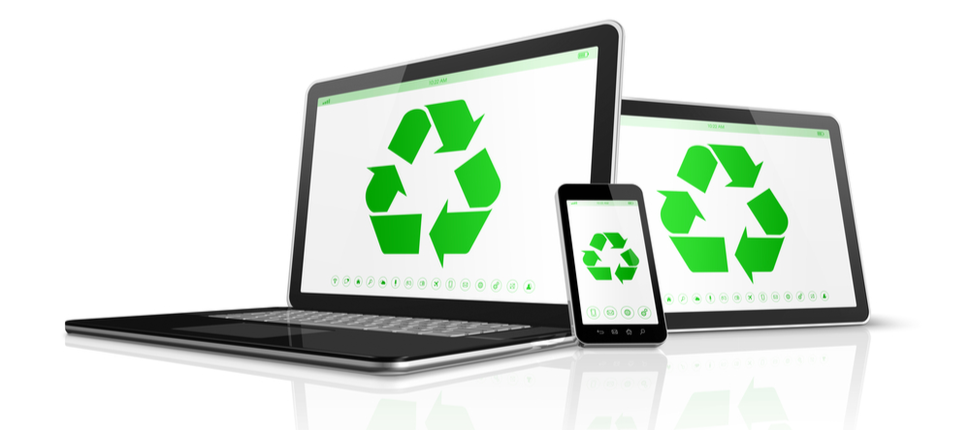E-Waste and your Data: Recycling Your Computer the Right Way

Extra care always needs to be taken when disposing of electronics for environmental reasons, but when you’re ready to recycle your computer or laptop, special considerations have to come into play to protect your data. Your computer is a pivotal repository of your life, from financial information like tax returns to family photos. A thrown-away computer can be a treasure trove for an identity thief. Let’s take a look at the right way to handle recycling your computer.
E-Waste: a constant struggle
We churn through a lot of electronics. A lot. According to Consumer Reports and Gartner, roughly 1.5 billion cells phones were purchased in 2017. So where did the phones those new devices replace go? According to a the United Nation’s Global E-Waste Monitor, there were 53 million metric tons of electronics were disposed of in 2019.
And we’re still churning through devices every year. That amount is up by 21% in just five years. High consumption, short life cycles, and few options for repair lead the reasons why we keep creating more and more e-waste every year. In fact, it’s our fastest-growing waste stream, and less than 18% of all e-waste is recycles, meaning recoverable materials like gold, silver, and copper are dumped or burned, while valued at roughly $57 billion. In fact, individuals can make a tidy profit dredging up the valuable parts in e-waste.
This leads to two questions: What do you do with your old machine when you upgrade, and how do you make sure when you do pass your computer along your data remains safe?
Protect your data before you sell or recycle
So you’ve decided to upgrade. Whether you are bringing that old laptop to your local e-waste recycling day, selling it on eBay, or giving it to a friend or colleague, you want to make sure your data is not readily available to the next person who powers on your device.
The Federal Trade Commission offers some basic steps to prevent identity theft before recycling your computer.
First: back up your data. There’s a number of ways to do this, and it’s worth considering more than one, or even all.
- Transfer your old files to your new machine, for starters (most new operating systems make this easier than ever).
- You might also consider using an external hard drive for storage. External storage isn’t hard to acquire, and prices have come down on external drives.
- Another options: save your data to the cloud. There are many services to enable this, though in using a cloud-based storage service you are entrusting your data with an outside resource, so know which vendor you’re getting involved with.
Don’t forget to sign out of everything before you recycle your computer, and disconnect every device, like a Bluetooth keyboard or mouse.
And finally, erase your hard drive. Most computers should have a function for a factory reset, but if not, there are reliable programs available to do just that.
What to do with the machine after it’s wiped
First of all, don’t just throw it out. (We’re talking about e-waste recycling after all.) If the computer is less than five years old, someone can likely do some good with it. Not only could another home user potentially refurbish and use the machine – often local libraries or non-profits can use them to help provide access to computers for those who might otherwise not be able to. For example, Microsoft has the Registered Refurbisher option that can help connect you to a non-profit in your area.
Naturally, if the computer is just too old or too beat up to be refurbished, dispose of it through a proper channel or organization. Earth911 has a search option for safe ways to dispose of your old laptops.
Whatever you do, don’t just throw out the device. Not only should you take care to protect your data – proper recycling of e-waste prevents toxic chemicals from re-entering the environment.
Staying safe with e-waste works both ways
Also, don’t forget staying safe when recycling and refurbishing computers works both ways. Not only do you need to make sure your data is safe before disposing of a computer – when buying a used one, you’ll want to take precautions as well (as we’ve discussed previously). Be sure to run cybersecurity software you trust (like Sophos Home) on a recycled machine to protect you from any lurking threats even the previous owner may not be aware of.